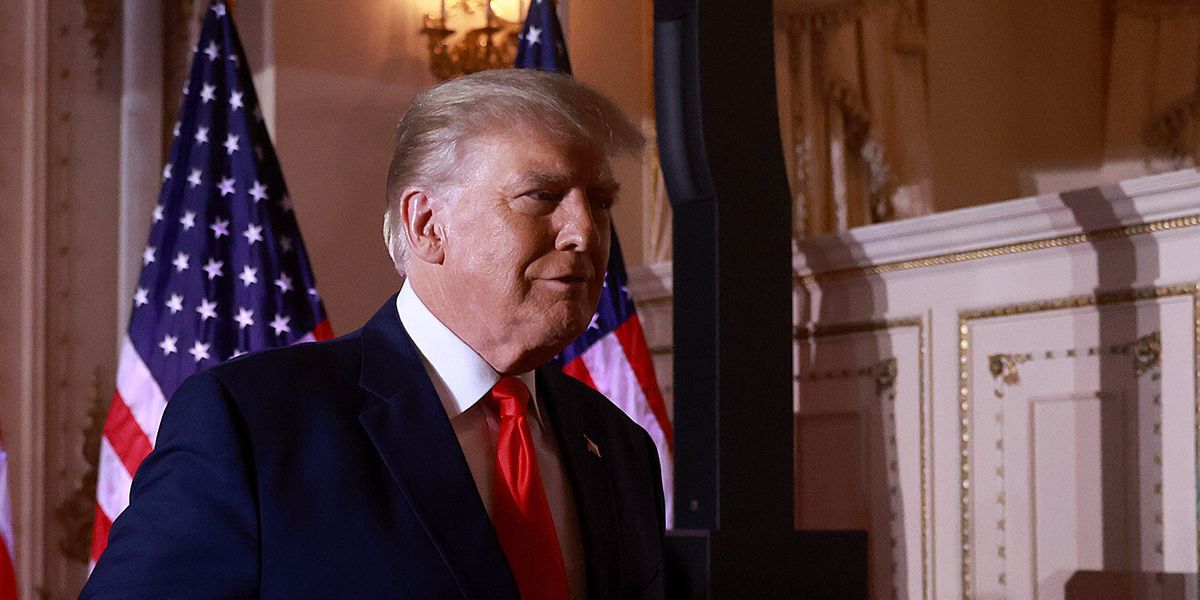Former President Donald Trump has made the execution of drug dealers a central part of his reporting in recent months.
“We are going to ask anyone who sells drugs and is caught selling drugs to face the death penalty for their heinous acts,” Trump said Tuesday to cheers from his supporters at Mar-a-Lago, the social club he owns in Palm Beach, Florida. The line was part of an hour-long speech announcing his plans to challenge President Joe Biden in 2024.
Trump has long mused about executing drug dealers, first publicly mentioning it after a meeting with Singapore’s leaders in 2018. However, his emphasis on the subject as he kicks off a 2024 bid shows just how likely it is that Trump will deploy his unchecked instincts for authoritarianism if he wins the presidency again.
He doesn’t even bother to hide the authoritarian roots of his proposal. Trump expressly credits President Xi Jinping, China’s dictatorial leader, for giving him the idea.
“In China, when I was with President Xi, I said, ‘President, do you have a drug problem?'” Trump said Tuesday night at Mar-a-Lago, citing that Xi reportedly said the problem was solved by ” fast processes”. where “by the end of the day you will be executed.”
“That’s awful, but they don’t have a drug problem,” Trump said. (It’s worth noting that Trump is a serial fabulist here, that his recollection of his conversation with Xi may not be reliable, and that China does indeed have a drug problem.)
Trump usually suggests when he mentions the death penalty for drug dealers that he knows it’s an extreme idea. “I don’t even know if the American public is ready for it,” he said Tuesday.
It is extremely unlikely that Trump could carry out such a proposal. Republicans in Congress appeared surprised by the idea on Wednesday, and a one-day trial for anyone accused of dealing drugs would violate numerous constitutional protections for those charged with crimes.
“I have to say I respect the fact that the president is speaking candidly about these matters, but that’s something I hope he’ll allow me to share my insightful opinion on,” Representative Clay Higgins (R-La.) told HuffPost.
Several Republicans in Congress said they had never heard the idea when HuffPost brought it up Wednesday.
“That’s a lot to think about,” said Rep. Brian Fitzpatrick (R-Pa.) said.
“That’s not a policy I’m aware of,” said Rep. Joe Wilson (RS.C.).
“Seems a little extreme,” said Rep. Glenn Thompson (R-Pa.) said. “But I will say that we have lost hundreds of thousands of lives in the last few years.”
However, Senator Lindsey Graham (RS.C.) supported the death penalty for fentanyl dealers. “I think fentanyl is such a deadly drug that that concept should be on the table,” he said.
Democrats and Republicans alike have been calling for a crackdown on fentanyl, the ultra-potent opioid that has driven overdose deaths to record highs in recent years. Sen. Joe Manchin (DW. Va.) and Rob Portman (R-Ohio) have urged the government to permanently list fentanyl as a Schedule 1 drug, despite the objection of liberal groups who want the government to of Biden takes a public health-focused approach to opioid addiction and reversing the war on drugs.
In state and federal law, the death penalty is usually reserved for murderers. The Supreme Court has said that the death penalty is an excessive and unconstitutional punishment for crimes that do not result in death.
In addition to China, a handful of other countries, including Iran and Saudi Arabia, regularly execute people for drug crimes. Trump has also specifically praised Rodrigo Duerte, former president of the Philippines, for his crackdown on drugs. Duerte’s anti-drug policy resulted in more than 12,000 deaths, many of them extrajudicial killings, and widespread human rights violations.
Four years into Duerte’s tenure, the head of the anti-drug division of the Philippine National Police admitted the “shock and awe” strategy had done little to reduce the demand for or supply of illicit drugs.

